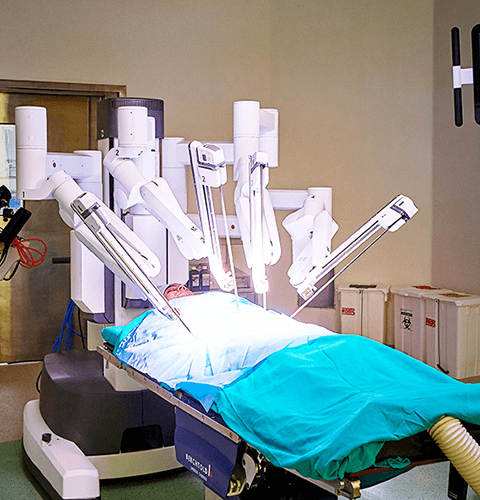-
Book Appointments & Health Checkup Packages
- Access Lab Reports
-
-
Book Appointments & Health Checkup Packages
-
Centre of
Excellence
Centre of Excellence
Other Specialities
- Anesthesiology
- Bariatric Surgery
- Cancer Care
- Dental Medicine
- Dermatology
- Ear Nose Throat
- Fetal Medicine
- Hemato Oncology
- ICU and Critical Care
- Internal Medicine
- Interventional Radiology
- IVF and Infertility
- Laboratory Medicine
- Microbiology
- Neonatology & NICU
- Nutrition And Dietetics
- Ophthalmology
- Paediatric And Child Care
- Paediatric Surgery
- Pain Medicine
- Pathology
- Pharmacy
- Physiotherapy
- Plastic, Reconstructive And Cosmetic Surgery
- Podiatric Surgery
- Psychiatry
- Pulmonology (Respiratory and Sleep Medicine)
- Radiology
- Reproductive Medicine
- Rheumatology
- Sports Medicine
- Vascular and Endovascular Surgery
- Doctors
- Hebbal
- International Patients


Clinical Pathology
Clinical Pathology treatment in Hebbal, Bangalore
Clinical pathology, sometimes known as laboratory medicine, is a medical speciality concerned with illness diagnosis based on the laboratory analysis of body fluids such as blood and urine, as well as tissues, employing methods from chemistry, microbiology, haematology, and molecular pathology. Clinical pathologists collaborate closely with medical technologists, hospital administrations, and referring physicians to assure laboratory testing accuracy and appropriate use.
Clinical pathology is one of pathology's two major divisions, the other being anatomic pathology. Pathologists frequently practice anatomic and clinical pathology, a combination known as general pathology.
Laboratory tests are one of the most widely used and vital modern medicine sold in contemporary medicine. Clinical ults influence the bulk of health-care choices. They provide healthcare about your health state and risk factors, which can be used to make a diagnosis, guide therapy, and predict your prognosis (prognosis). The results of laboratory testing influence many decisions about the treatment you and your healthcare practitioner make.
Pathologist
A pathologist is a pathology doctor. Both pathology and pathologist are derived from the Greek word pathos, which means "suffering." A pathologist is a medical professional who has received further training in laboratory techniques and provoide Clinical Pathology treatment in Hebbal, Bangalore. Pathologists examine tissues and other bodily materials, and these items are analysed to assist diagnose illness, monitoring ongoing medical issues, and advising treatment.
A pathologist is an essential member of any patient's treatment team. Nonetheless, the pathologist may be virtually undetectable to the patient. A pathologist spends a lot of time in the lab. A pathologist uses medical expertise to chalk out diagnostic solutions for every patient.
Pathology subspecialties
Pathology has numerous subspecialties. Dermatologists rely on dermatopathologists to identify skin illness; neurologists rely on neuropathologists' expertise; and so on. Here are some of the most prevalent pathology subspecialties,
-
Cytopathology, often known as cellular pathology, is the study of alterations in cells. Cytopathologists play an essential role in cancer diagnosis.
-
Haematology studies blood-borne illnesses and disorders such as anaemia, leukaemia, and haemophilia.
-
Forensic pathology studies bodies that died unexpectedly, suddenly, or brutally.
-
The study of infectious organisms is known as medical microbiology. Pathologists in this specialisation may advise clinicians and public health officials on combatting infectious diseases.
-
Immunology is the study of the immune system and the illnesses that result from a malfunctioning immune system.
-
Molecular genetic pathology studies a patient's genes to diagnose chronic diseases.
-
The study of poisons and poisoning is known as toxicology.
Role of fasting
The results of some tests are intended to be interpreted when you have not eaten before your sample is collected. Examples include lipid panels and glucose tests. When fasting, drinking only water is permitted. If you do not fast, the results may be affected and/or may not be interpreted correctly. Your blood sample may be drawn for some tests when you have not fasted; this information is noted on your records. Be sure to follow any fasting instructions, and tell the person drawing your blood whether or not you have fasted. Book an appointment at Manipal Hospitals to know more about treatments with the help of best doctors in Bangalore.
Experience world-class healthcare at Manipal Hospitals. Our expert team of doctors and state-of-the-art facilities ensure personalized and advanced treatments. Take the first step towards wellness. Book an appointment today.
Home Hebbal Specialities Laboratory-medicine Clinical-pathology


















